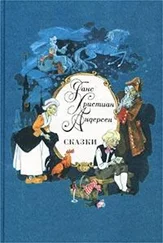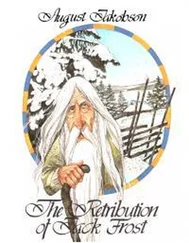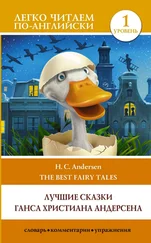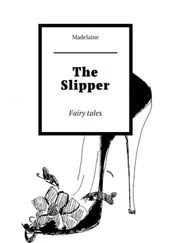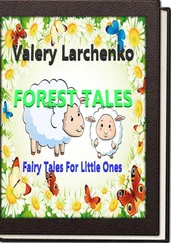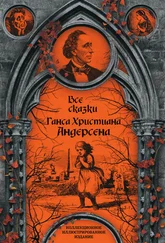Ганс Андерсен - Fairy Tales
Здесь есть возможность читать онлайн «Ганс Андерсен - Fairy Tales» весь текст электронной книги совершенно бесплатно (целиком полную версию без сокращений). В некоторых случаях можно слушать аудио, скачать через торрент в формате fb2 и присутствует краткое содержание. Жанр: Старинная литература, на английском языке. Описание произведения, (предисловие) а так же отзывы посетителей доступны на портале библиотеки ЛибКат.
- Название:Fairy Tales
- Автор:
- Жанр:
- Год:неизвестен
- ISBN:нет данных
- Рейтинг книги:4 / 5. Голосов: 1
-
Избранное:Добавить в избранное
- Отзывы:
-
Ваша оценка:
- 80
- 1
- 2
- 3
- 4
- 5
Fairy Tales: краткое содержание, описание и аннотация
Предлагаем к чтению аннотацию, описание, краткое содержание или предисловие (зависит от того, что написал сам автор книги «Fairy Tales»). Если вы не нашли необходимую информацию о книге — напишите в комментариях, мы постараемся отыскать её.
Fairy Tales — читать онлайн бесплатно полную книгу (весь текст) целиком
Ниже представлен текст книги, разбитый по страницам. Система сохранения места последней прочитанной страницы, позволяет с удобством читать онлайн бесплатно книгу «Fairy Tales», без необходимости каждый раз заново искать на чём Вы остановились. Поставьте закладку, и сможете в любой момент перейти на страницу, на которой закончили чтение.
Интервал:
Закладка:
“Thank you for the tin soldier, my little friend,” said the old man. “And thank you for coming to visit me.”
“Many thanks” or “creaks, cranks” came from all the furniture. There was so much of it that they nearly fell over each other in order to see the little boy.
There was a picture of a beautiful woman hanging in the middle of the wall. She was very young and happy, but dressed like they did in the old days, with powder in her hair and stiff skirts. She said neither “many thanks” nor “creaks, cranks” but looked at the little boy with her gentle eyes. He immediately asked the old man, “Where did you get her?”
“At the second-hand shop,” said the old man. “There are so many pictures hanging there. No one knows or cares about them because they are all dead, but I knew her in the old days. She’s been dead and gone for half a hundred years.”
Under the picture a wilted bouquet of flowers was hanging under glass. They must have been half a hundred years old too, that’s how old they looked. And the pendulum on the big clock swung back and forth, and the hands turned, and everything in the room became even older, but they didn’t notice that.
“At home they say that you are so terribly alone,” said the little boy.
“Oh,” he said, “old memories, and everything they bring with them come to visit me, and now you came too!—I am doing just fine.”
And then he took a picture book down from the shelf. There were long parades of people, the strangest coaches that you don’t see nowadays, soldiers like the jack of clubs, and citizens carrying waving banners. The tailors’ banner had scissors on it, held up by two lions, and the shoemakers’ was an eagle with two heads, not a boot, since the shoemakers always have to have everything so they can say, “it’s a pair.” Yes, that was quite a picture book!
Then the old man went into the other room to get jam, apples, and nuts. Oh, what a treat it was to be in the old house!
“I can’t stand it,” said the tin soldier, who was standing on the chest of drawers. “It’s so lonely and sad here. When you’ve lived in a family, you can’t get used to this! I can’t stand it! The days are so long, and the nights are even longer. It’s not at all like it was at your house where your father and mother talked so pleasantly, and you and all the other children made such lovely noise. Oh, how lonely the old man is! Do you think anyone kisses him? Do you think anyone gives him a friendly look? Does he get a Christmas tree? He’ll get nothing except a funeral! —No, I can’t stand it!”
“Don’t take it so hard,” said the little boy. “I think it’s really nice here, and all the old memories with everything they bring come to visit, you know.”
“Well, I don’t see them and I don’t know them,” said the tin soldier. “I can’t stand it!”
“You must!” said the little boy.
And the old man came back with such a happy face and with the most lovely jam, apples, and nuts, so the little boy didn’t think any more about the tin soldier.
The little boy went home happy and satisfied, and weeks and days went by with nods to and from the old house, and then the little boy went there again.
And the carved trumpets blared “Tra-ter-ah-tra!! There’s the little boy. Tra-ter-ah-tra!” And the sword and armor in the knight’s pictures rattled, and the silk dresses rustled, the pigskin talked and the old chairs had arthritis in their backs: “ouch!” It was just like the first time, because over there one day and hour were just like the next.
“I can’t stand it!” said the tin soldier. “I have cried tears of tin. Everything is too sad here! Let me rather go to war and lose my arms or legs! That would be something different anyway. I can’t stand it! Now I know what it’s like to be visited by old memories, with everything they bring with them. I’ve been visited by mine, and believe me, there’s no pleasure in it in the long run. I was about to jump down off the chest. I saw all of you over there in the house so clearly as if I really was there. It was that Sunday morning, you remember. All you children were standing by the table singing your hymns like you do every morning. You were standing there with folded hands, and your father and mother were just as solemn. Then the door opened, and your little sister Maria, who isn’t even two years old yet, and always dances when she hears music or songs, no matter what kind they are, was let in—she shouldn’t have been—and started dancing. But she couldn’t get into the rhythm because the notes were so long. So first she stood on one leg and bent her head way forward, and then she stood on her other leg and bent her head way forward, but she couldn’t get it. You were all very serious, although that must have been hard, but I laughed to myself and because of that I fell off the table and got a bump, which I still have, since it wasn’t nice of me to laugh. But now it all comes back to me again, and everything similar I have experienced, and that must be the old memories with everything they bring. Tell me, do you still sing on Sundays? Tell me something about little Maria. And how is my comrade, the other tin soldier? He’s happy, I’m sure of that. I can’t stand it!”
“You’ve been given away,” said the little boy. “You have to stay here. Can’t you see that?”
The old man came in with a drawer in which there was much to see, both pencil, coin, and perfume boxes and old cards that were so big and gilded that you don’t see anything like them today. Then other drawers were opened, and the piano was opened too. It had a landscape painted inside the lid, and it sounded so hoarse when the old man played it and hummed a tune. “She could sing that one,” he said and nodded at the portrait he’d bought second-hand, and the old man’s eyes shone so brightly.
“I want to go to war! I want to go to war!” shouted the tin soldier as loudly as he could and threw himself right down on the floor.
What happened to him? The old man searched for him, and the little boy searched for him, but the tin soldier was gone, and gone he remained. “I’m sure I’ll find him,” said the old man, but he never did find him. The floor was cracked and had holes in it. The tin soldier had fallen through a crack and lay there as if in an open grave.
And that day passed by, and the little boy went home. The week passed and several more weeks went by. The windows were frosted over. The little boy had to breathe on them to get a little peep-hole where he could look over to the old house, and there the snow had drifted into all the scrolls and inscriptions. It covered up the steps as if there was no one at home, and there wasn’t anyone at home. The old man was dead!
A carriage stopped there in the evening, and they carried him out to it in his coffin. He was going to be buried out in the country, and the carriage drove away, but no one followed along. All of his friends were dead, you see. The little boy blew kisses to the coffin as it was driven away.
A few days later there was an auction at the old house, and the little boy watched from his window as things were carried away: the old knights and the old women, the herb pots with the long ears, the old chairs and the old cabinets. Some went to one place, some to another. The portrait of the woman that was found at the second-hand shop was returned there again, and there it would always hang, since no one knew her any longer. No one cared about the old picture.
In the spring the house itself was torn down, because people said it was a monstrosity. You could look right into the room with the pigskin wallpaper, which was tattered and torn. All the greenery around the balcony hung randomly on the fallen beams. And then it was cleaned up.
Читать дальшеИнтервал:
Закладка:
Похожие книги на «Fairy Tales»
Представляем Вашему вниманию похожие книги на «Fairy Tales» списком для выбора. Мы отобрали схожую по названию и смыслу литературу в надежде предоставить читателям больше вариантов отыскать новые, интересные, ещё непрочитанные произведения.
Обсуждение, отзывы о книге «Fairy Tales» и просто собственные мнения читателей. Оставьте ваши комментарии, напишите, что Вы думаете о произведении, его смысле или главных героях. Укажите что конкретно понравилось, а что нет, и почему Вы так считаете.

![Ганс Андерсен - Ганс Чурбан[другой перевод]](/books/95480/gans-andersen-gans-churban-drugoj-perevod-thumb.webp)
